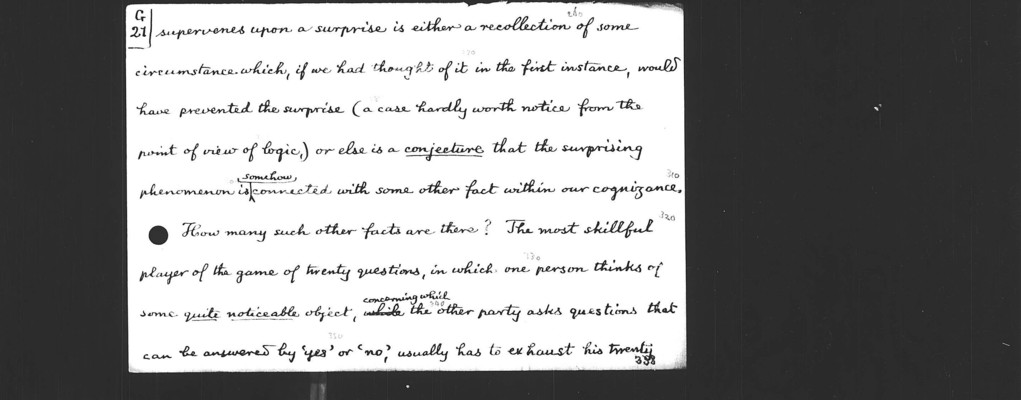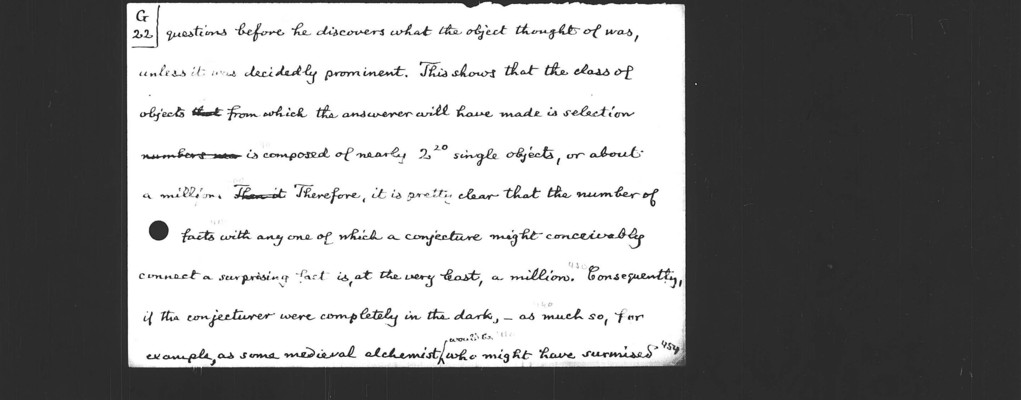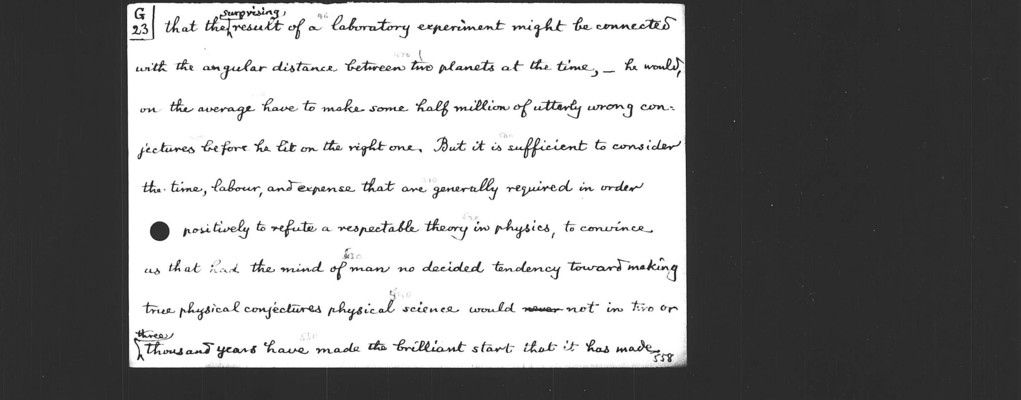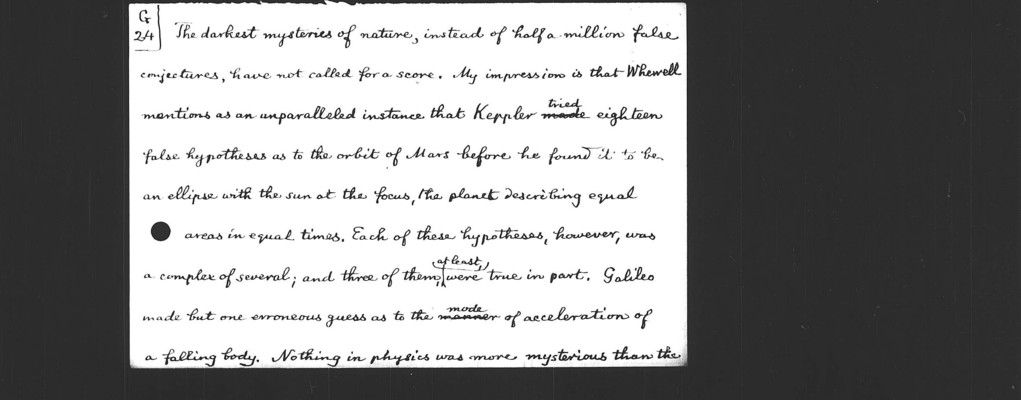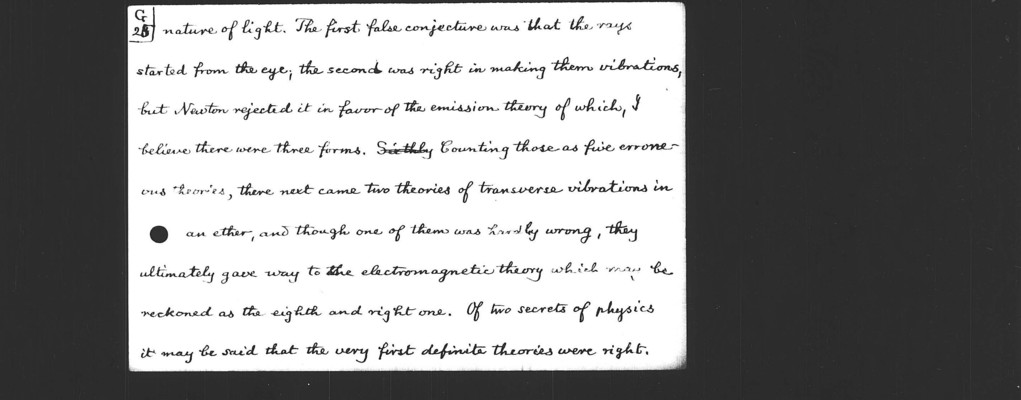Pages
21
G21
supervenes upon a surprise is either a recollection of some circumstance which, if we had thought of it in the first instance, would have prevented the surprise (a case hardly worth notice from the point of view of logic,) or else is a conjecture that the surprising phenomenon is somehow connected with some other fact within our cognizance.
How many such facts are there? The most skillful player of the game of twenty questions, in which one person thinks of some quite noticeable object, while concerning which the other party asks questions that can be answered by 'yes' or 'no,' usually has to exhaust his twenty
22
G22
questions before he discovers what the object thought of was, unless it was decidedly prominent. This shows that the class of objects that from which the answerer will have made is selection numbers near is composed of nearly 220 single objects, or about a million. Then it Therefore, it is pretty clear that the number of facts with any one of which a conjecture might conceivably connect a surprising fact is, at the very least, a million. Consequently, if the conjecturer were completely in the dark,—as much so, for example, as some medieval alchemist would be who might have surmised
23
G23
that the surprising result of a laboratory experiment might be connected with the angular distance between two planets at the time,—he would, on the average have to make some half million of utterly wrong conjectures before he lit on the right one. But it is sufficient to consider the time, labour, and expense that are generally required in order positively to refute a respectable theory in physics, to convince us that had the mind of man no decided tendency toward making true physical conjectures physical science would never not in two or three thousand years have made the brilliant start that it has made.
24
G24
The darkest mysteries of nature, instead of half a million false conjectures, have not called for a score. My impression is that Whewell mentions as an unparalleled instance that Keppler made tried eighteen false hypotheses as to the orbit of Mars before he found it to be an ellipse with the sun at the focus, the planet describing equal areas in equal times. Each of these hypotheses, however, was a complex of several; and three of them, at least, were true in part. Galileo made but one erroneous guess as to the manner mode of acceleration of a falling body. Nothing in physics was more mysterious than the
25
G25
nature of light. The first false conjecture was that the rays started from the eye; the second was right in making them vibrations, but Newton rejected it in favor of the emission theory of which, I believe there were three forms. Sixthly Counting those as five erroneous theories, there next came two theories of transverse vibrations in an ether, and though one of them was hardly wrong, they ultimately gave way to the electromagnetic theory which may be reckoned as the eighth and right one. Of two secrets of physics it may be said that the very first definite theories were right.
